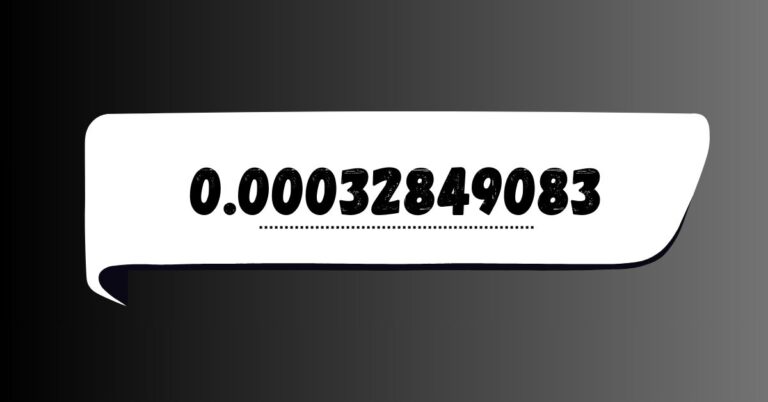Understanding 2602063827: A Comprehensive Overview
The keyword “2602063827” may seem cryptic at first glance, yet it carries intrigue and significance in certain contexts. Whether it pertains to a numerical code, a serial number, a phone number, or something unique to a niche field, understanding its potential applications and meanings requires a deep dive into its plausible contexts. This article unpacks everything you need to know about 2602063827, exploring its relevance across various domains and scenarios.
The Significance of Numerical Strings
Numerical sequences like 2602063827 hold different meanings depending on their usage. Numbers are often used as identifiers, codes, or categorizations in technology, telecommunications, business, and more. Their importance lies in their capacity to represent data succinctly, enabling clarity and precision in complex systems.
In technology, for instance, numbers might serve as serial codes for devices, application programming interfaces (APIs), or unique identifiers in databases. Similarly, in telecommunications, a number might be a phone line, part of a calling code, or an account number. Understanding the domain in which 2602063827 is used is vital to interpreting its significance.
Possible Contexts of 2602063827
Telecommunications
One of the most common associations with a numerical sequence like 2602063827 is a phone number. If this is indeed a phone number, it could be tied to a specific region or service provider. The prefix and format can offer clues regarding its origin and purpose.
For example, in some numbering systems, the first few digits of a number indicate the geographical area or country. If 2602063827 is part of an international phone number, the country code might provide insights into its region. Further analysis could reveal whether it is a mobile, landline, or service number.
Technology and Coding
Numerical sequences like 2602063827 also play a prominent role in technology. They might represent API keys, software version identifiers, or unique database entries. In software development, such numbers are often used to distinguish different instances or resources.
For instance, in web development, a sequence like 2602063827 could be part of a user ID or session token. These identifiers help maintain the uniqueness of each user’s interaction with a platform. Similarly, in cloud computing or distributed systems, numerical identifiers are essential for managing resources and ensuring data integrity.
Business and Finance
In business and finance, numbers like 2602063827 could appear as account numbers, transaction IDs, or invoice numbers. Companies use such sequences to streamline record-keeping and improve operational efficiency.
For example, if 2602063827 is tied to a bank account, it could correspond to a specific customer or account type. Similarly, it might be part of an invoice, helping businesses track transactions and manage their financial data effectively.
Cryptography and Security
In the realm of cryptography, numbers like 2602063827 could hold even deeper significance. Randomized sequences are often used to generate encryption keys or secure tokens. These tokens protect sensitive information by ensuring that unauthorized users cannot access or manipulate it.
If 2602063827 serves as part of a cryptographic process, its randomness and uniqueness would be critical. Such sequences might be employed in secure communications, digital signatures, or password management systems.
Investigating the Origins of 2602063827
Identifying Regional Connections
To determine whether 2602063827 is linked to a specific region, examining its prefix and numerical structure is crucial. Regional or international codes often follow standardized formats, making it possible to trace their origins.
For example, in telecommunications, analyzing the digits can help identify the country, city, or service provider associated with the number. Tools like reverse lookup services can also shed light on its connections.
Exploring Technological Applications
If 2602063827 relates to technology, its context within a platform or system becomes important. Researching the associated software, website, or application could reveal how and why the number is used. For example, querying it in a database or checking its presence in a URL might offer valuable insights.
Tracing Financial or Business Ties
In business, sequences like 2602063827 are often stored in customer management systems or invoicing platforms. Searching through relevant documents or contacting the associated company can help verify its purpose. Financial institutions and service providers often maintain detailed records of such numbers.
The Role of Numbers in Digital Transformation
Numbers like 2602063827 exemplify the growing reliance on numerical identifiers in our increasingly digital world. As systems become more interconnected, the ability to assign, manage, and track unique numbers is essential.
In digital transformation, organizations use numerical sequences to optimize processes and enhance user experiences. For example, online services generate user IDs to personalize content and improve customer interactions. Similarly, businesses use transaction numbers to provide detailed receipts and ensure transparency in financial dealings.
Privacy and Security Concerns
While numbers like 2602063827 are valuable, they also pose potential privacy and security risks. Unauthorized access to such identifiers could lead to data breaches, identity theft, or financial fraud. Ensuring the protection of numerical data is therefore a top priority in various industries.
Security measures like encryption, multi-factor authentication, and secure storage practices are commonly employed to safeguard sensitive numbers. Organizations must also educate users about recognizing and avoiding phishing attempts, which often target numerical identifiers.
The Future of Numerical Identifiers
As technology continues to advance, the use of numerical identifiers like 2602063827 will likely grow in scope and complexity. Emerging fields such as the Internet of Things (IoT), artificial intelligence (AI), and blockchain rely heavily on unique numbers for data management and verification.
In the IoT, devices communicate using unique identifiers to ensure seamless interaction. In blockchain, numerical keys and hashes are fundamental to maintaining decentralized systems. These advancements highlight the enduring importance of numerical sequences in shaping modern innovations.
Conclusion
The keyword “2602063827” represents more than just a sequence of numbers; it reflects the multifaceted role that numerical identifiers play in our interconnected world. Whether tied to telecommunications, technology, business, or security, its significance lies in its ability to streamline processes, ensure accuracy, and enhance functionality.
Understanding the context and applications of such numbers is vital to unlocking their full potential. By leveraging the power of numerical sequences, individuals and organizations can navigate complex systems with greater efficiency and precision. In a digital era defined by data and connectivity, numbers like 2602063827 are not just identifiers—they are the building blocks of progress and innovation.







